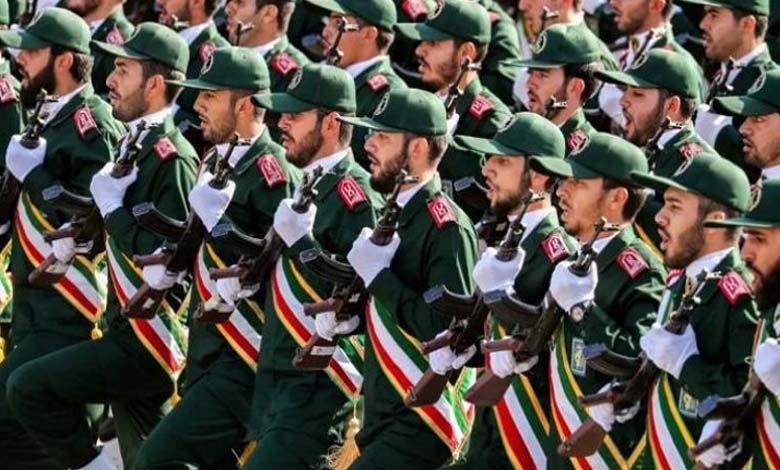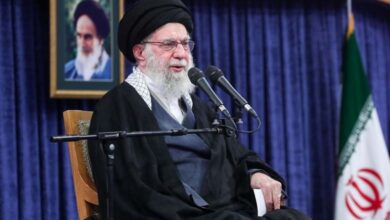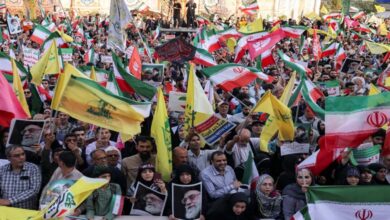British lawmakers are calling for the classification of the Revolutionary Guard as a terrorist organization

Classifying the Iranian Revolutionary Guard as a terrorist group means that belonging to it, attending its meetings, or displaying its emblem in public places would become a crime in the UK. British lawmakers and members of the House of Lords have urged the government to impose a ban on the Iranian Revolutionary Guard, stating that this would be a step towards restoring stability in the Middle East.
The classification of the Iranian Revolutionary Guard as a terrorist group means that belonging to it, attending its meetings, or displaying its emblem in public places would become a crime in the UK. The Iranian Revolutionary Guard is already subject to British sanctions.
More than 60 lawmakers from the House of Commons and members of the House of Lords sent a letter to Prime Minister Rishi Sunak, stating, “Given the ongoing conflicts in the Middle East, the ban on the Iranian Revolutionary Guard has now become more urgent than ever.”
The letter, signed by prominent figures in the Conservative Party, such as Ian Duncan Smith, David Davis, and David Jones, stated, “We call on our government to recognize the urgent need to classify the Iranian Revolutionary Guard as a terrorist organization and to proceed with it. Such a decision will be a significant step towards peace, stability, and justice in the Middle East and beyond.”
In January, the Foreign Office said that Britain is seriously considering classifying the Iranian Revolutionary Guard as a terrorist organization, but no final decision has been reached. The signatories of this letter also cited the Scotland Yard report, saying that since the beginning of 2022, Iran has kidnapped or killed “its enemies” in Britain or those residing in Britain 15 times.
Ken Macallum, the Director-General of the British domestic security agency known as “MI5,” previously stated on October 17, referring to “the hostile actions of the Iranian regime on British soil,” that dealing with Tehran’s threats is a top priority for London.
In the politicians’ letter to Sunak, they emphasized that listing the Iranian Revolutionary Guard as a terrorist group would help bring peace, stability, and justice to the Middle East, in addition to protecting British national security.
In reference to the “undeniable role” of the Iranian regime in fueling violence and conflicts in the region, the politicians added that Tehran provides military, financial, and educational support to terrorist groups.
According to The Telegraph, there is no consensus in the British government on taking action against the Iranian Revolutionary Guard. The newspaper wrote that British Home Secretary Suella Braverman agrees with listing the Iranian Revolutionary Guard as a terrorist organization.
Furthermore, The Sunday Times reported in August that Braverman believes the Iranian Revolutionary Guard is the biggest threat to British national security after obtaining new evidence of the Revolutionary Guard’s influence in Britain. She also expressed concerns about a potential increase in the Revolutionary Guard’s activities in Britain and intelligence reports regarding Iran recruiting spies for criminal organizations to target Iranian regime opponents in the UK.
However, British Foreign Secretary James Cleverly expressed his concerns in September that listing the Iranian Revolutionary Guard as a terrorist group might harm British interests.
In addition to this, after the lethal attack by Hamas on Israel on October 7, and speculations about Iran’s role in planning and executing this operation, Washington asked London to take action against the Iranian Revolutionary Guard.
Members of the European Parliament have previously called for the inclusion of the Iranian Revolutionary Guard in the list of terrorist organizations. This came after four months of popular protests following the killing of Mahsa Amini by security forces in the Iranian capital, Tehran.
Swedish Member of Parliament Ali Reza Akhondi (43 years old) from the Center Party was the one who proposed this initiative, which received support from 117 European Parliament members. Akhondi said, “Let us unite and come together with a common spirit to classify the Iranian Revolutionary Guard as a terrorist organization. Punishing criminals alone is not enough; we need a decision.”
Majid Golpour, a researcher at the Free University in Brussels and an advisor to the European Parliament, explained that “approval of the decision to classify the Revolutionary Guard on the list of terrorist organizations will allow the European Parliament to exert more pressure on the European Commission, which is the only one with the authority to vote on sanctions.”












